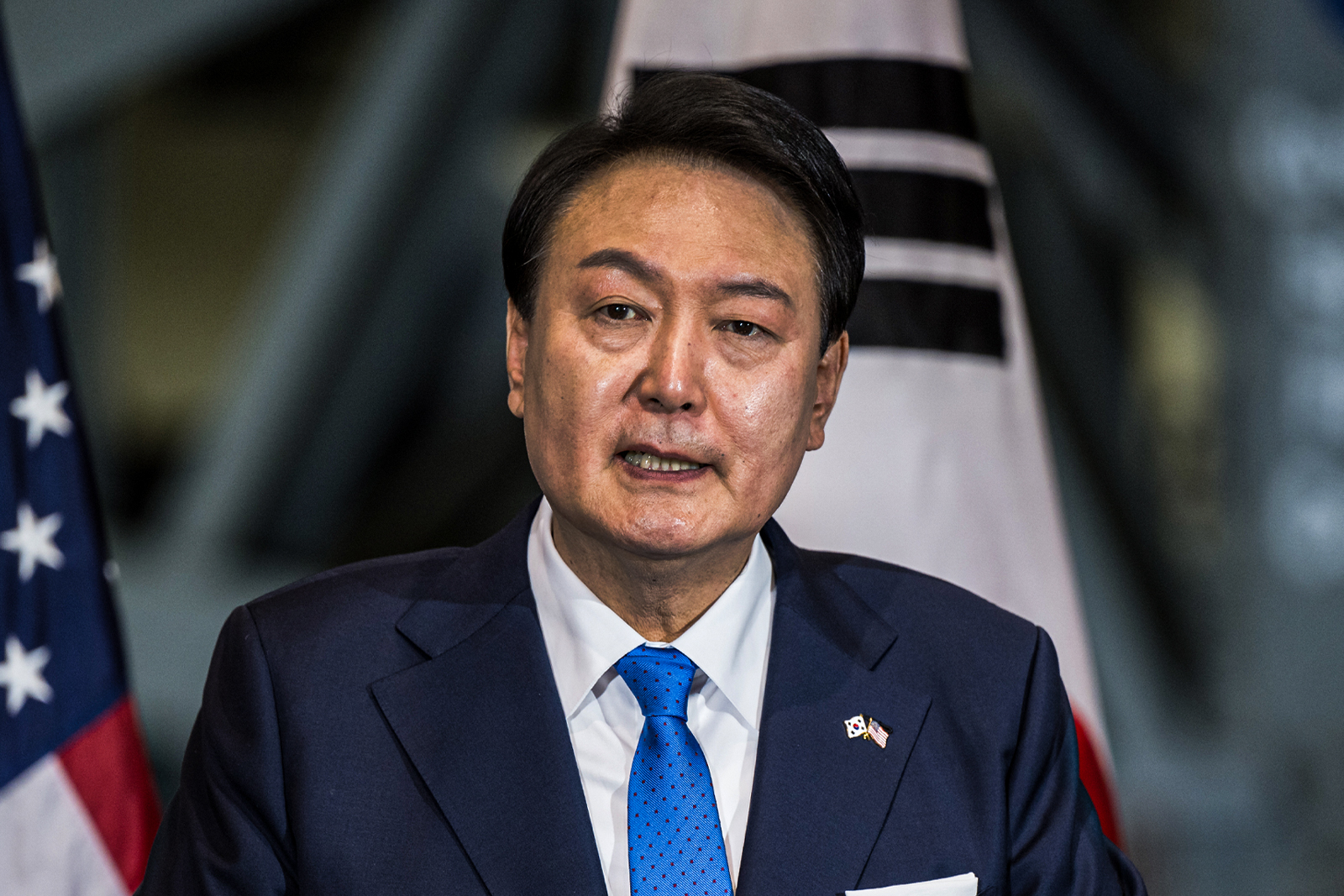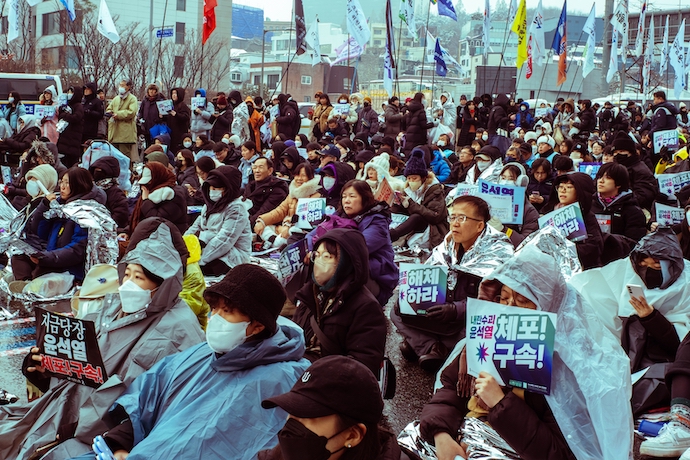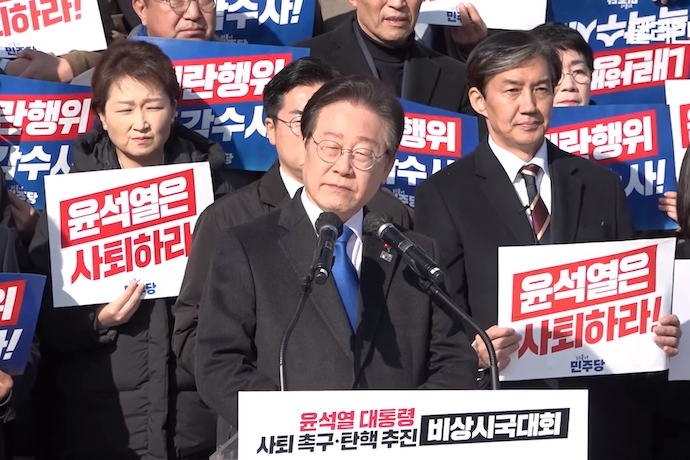
How South Korea’s Political Shifts Could Reshape Gulf Relations
South Korea’s political crisis, triggered by President Yoon Suk Yeol’s contentious decision to attempt to implement martial law, transcends national politics to affect economic policy and foreign affairs. Seoul has meticulously cultivated its international standing over decades, and Yoon’s decision has shaken not only the country’s political cohesion but also its international reputation. Given this development, one must ask how this upheaval will shape South Korea’s global standing, particularly as a trusted partner to GCC states.
Since transitioning from dictatorship to democracy in 1987, South Korean presidents have wielded formidable constitutional powers while repeatedly facing risks of impeachment or criminal prosecution due to the nation’s polarized domestic politics. President Yoon’s predicament highlights this paradox: despite his wide-ranging authority, he resorted to martial law. This controversial step has triggered a political impasse and set the stage for further deadlock.

Seoul’s international credibility has suffered, threatening its relations with Japan and its strategic alignment with the United States. If the opposition Minjoo Party were to gain both executive and legislative control, it might bring steadier domestic governance. However, such a shift would likely lead to foreign policy changes, especially regarding relations with Tokyo and Washington, as the Minjoo Party has a more nationalist stance. A reversal of South Korea’s recent rapprochement with Japan could ripple into the evolving U.S. strategy in East Asia, particularly its efforts to counter China’s growing influence. These dynamics underscore the broader risks inherent in South Korea’s crisis.
While South Korea’s relations with the GCC states are expected to remain stable, the crisis’s impact on its ties with the United States and Japan adds geopolitical risk. Washington’s regional strategy to unify allies against China risks unraveling, and the warming of Seoul-Tokyo relations—one of Yoon’s most significant achievements—may falter under new leadership. Despite this volatility, the enduring partnerships between South Korea and the GCC, built over decades of cooperation in energy, infrastructure, and technology, provide a buffer against political turbulence.
The GCC states have become vital partners for South Korea—a relationship that runs deeper than many realize. Although the current crisis might cause some short-term hesitation in new deals, it’s crucial to acknowledge how far these ties have progressed. What began as simple oil-for-cash transactions in the 1970s has evolved into a complex, multifaceted partnership. Today, Korean companies are building nuclear plants in the United Arab Emirates (UAE), Korean entertainment captivates Gulf audiences, and joint research projects advance fields ranging from hydrogen technology to smart cities. These partnerships, built on trust and shared understanding, are resilient enough to endure political turbulence.
In recent years, South Korea has tailored strategic initiatives to align with each GCC country’s priorities: a futuristic energy and infrastructure deal with Saudi Arabia in 2022, a Special Strategic Partnership with the UAE in 2018, and the elevation of ties with Qatar to a Comprehensive Strategic Partnership in 2023. Trade between South Korea and GCC states reached $91.4 billion in 2023, with an additional $10.5 billion invested in major construction and engineering projects. The signing of a Free Trade Agreement in December 2023 reflects a growing commitment to deeper collaboration. These strategic partnerships ensure that domestic politics do not undercut the relationship.

Even so, the National Assembly’s rejection of martial law, while demonstrating democratic resilience, has exposed vulnerabilities in South Korea’s political machinery. Since democratization, the presidency has combined extensive authority with an almost paradoxical fragility, frequently marred by scandals and premature exits. Yet, GCC states have shown a remarkable ability to navigate these internal challenges, focusing instead on maintaining their economic and strategic goals with Seoul.
Domestically, the political crisis has already impacted South Korea’s economy, with the Korean won and stock market suffering. Political stability is essential for attracting foreign investment and sustaining economic growth. Yet, this crisis must be viewed within a broader context. Gulf states are actively reducing their dependence on hydrocarbons, shifting toward smart cities, digital ecosystems, and renewable energy. South Korea’s expertise in these advanced sectors complements the GCC’s national vision programs, such as Saudi Vision 2030, Qatar National Vision 2030, and UAE Centennial 2071. Both sides share long-term ambitions that can withstand short-term uncertainties.
More broadly, the GCC–South Korea partnership is part of a larger web of Gulf–East Asian relations. While China remains the Gulf’s largest trading partner and Japan retains a significant presence, South Korea has carved out a distinctive niche in technology transfer and infrastructure development. This diversification aligns with the GCC’s goal of distributing international engagements more evenly, minimizing reliance on any single external partner. Such strategic foresight suggests that Gulf states are unlikely to abandon their relationship with Seoul over a transient political crisis.
In the short term, Gulf investors and other international stakeholders are expected to be cautious. Clarity on South Korea’s political stability will be essential for new ventures. However, the deep-rooted and multifaceted nature of GCC-South Korea ties offers a buffer against temporary instability. With their relationship grounded in strategic objectives, Gulf partners are likely to maintain their engagement with Seoul.
While South Korea’s political crisis unfolds, the broader implications are likely to focus on its relations with Japan and the United States and its role within East Asia’s geopolitical landscape. For the GCC, the stability of its partnership with Seoul seems assured, with both sides continuing to pursue shared prosperity and a common future.
